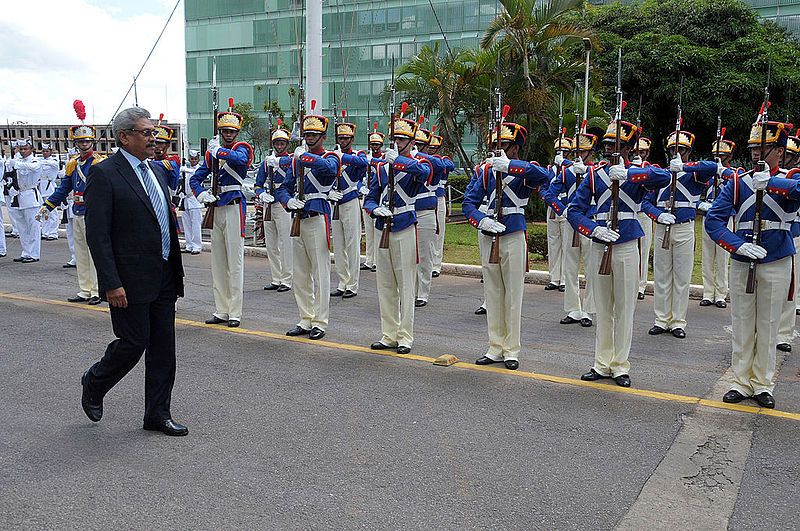Opposition Candidate Wins Presidential Election in Sri Lanka

Who is the winner?
Rajapaksa, affiliated with the Sri Lanka Podujana Peramuna party (Sri Lanka People's Front, SLPP), won the election with 52% of the vote, which had over 80% turnout. The winner is the brother of Mahinda Rajapaksa, a two-time president in 2005–2015, who could not run in the elections again because of the constitution’s two-term limit. Gotabaya Rajapaksa was Sri Lanka’s secretary of defence in the years when the military conducted a decisive offensive against the Tamil Tigers in 2009, ending more than 25 years of civil war. He is seen by international organisations as complicit in violations of human rights and crimes against the Tamil minority. His main rival for the presidency, Sajith Premadasa, the housing minister in the current government and the son of a former president of Sri Lanka, obtained 42% of the vote.
What influenced the result?
The terrorist attacks carried out by Islamic extremists on Easter (21 April), in which more than 250 people were killed, pushed security to the top of agenda of the election campaign. Rajapaksa presented himself as having proved he could fight and defeat terrorists and also appealed to Sinhalese nationalism. The political infighting between incumbent President Maithripala Sirisena and Prime Minister Ranil Wickremesinghe was recognized as an important reason why warnings about the attacks were ignored, discrediting both politicians and forcing them out of the election. Also, an economic slowdown in Sri Lanka (to 2.6% of GDP in 2019) and rising unemployment also likely hurt the ruling parties’ candidate. As well, none of Rajapaksa’s family members has been found guilty of corruption or crimes committed during the civil war.
What are the consequences of the election?
Rajapaksa’s decisive victory may end the political crisis that has been consuming the state for more than a year as a result of disputes within the ruling camp. To take full power in the semi-presidential political system, SLPP will have to win the parliamentary elections planned for early next year. In that case, Mahinda Rajapaksa will likely become prime minister. The new president’s priority will be to improve security and boost economic growth. At the same time, the path seems closed now to holding civil-war era officials accountable for human rights violations. That will make it even more difficult to fully reconcile the Sinhalese majority with the Tamils. Although Rajapaksa assured that he wants to be the president of all Sri Lankans, the minorities (mainly Tamils and Muslims) who voted for Premadasa are afraid of increased ethnic tensions and a deterioration of democratic norms.
What is the international significance of the election?
The president will likely end cooperation with the UN High Commissioner for Human Rights, which Sri Lanka committed itself to under UN Human Rights Council Resolution 30/1 of October 2015 on “promoting reconciliation, accountability and human rights in Sri Lanka” (confirmed in Resolution 40/1 of March 2019). As a result, tensions with the EU and the U.S. may increase again, as these countries view accountability in Sri Lanka for past human rights violations as a condition for national reconciliation and peace. The election result is favourable for China, which became Sri Lanka’s main ally during Rajapaksa’s rule, so the Chinese can count on increased influence. Probably, Sri Lanka will be careful not to worsen relations with India or the U.S. It will try to use its strategic location along the main trade routes in the Indian Ocean to extract maximum economic benefits from all its partners.


